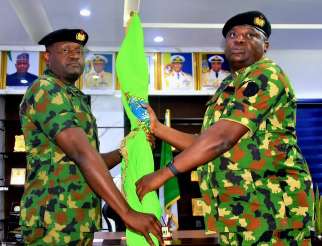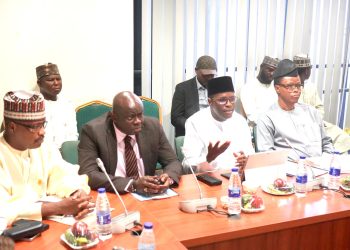By Nkechi Eze
The atmosphere at the prestigious Wells Carlton Hotel & Suites in Asokoro, Abuja, was electrifying on Saturday, June 14, 2025, as Nigeria’s capital played host to the 7th edition of the Silent Heroes Awards, a night dedicated to celebrating unsung champions making extraordinary impacts in their fields. Among the luminaries honoured was the Director General of the National Emergency Management Agency (NEMA), Mrs. Zubaida Umar, who was awarded the Silent Hero in Emergency Management for her pioneering leadership and quiet but powerful transformation of Nigeria’s emergency response framework.
The Silent Heroes Awards, a growing national tradition, seeks to spotlight individuals and institutions who have shown outstanding commitment to service, often without the fanfare or recognition their efforts deserve. This year, 41 recipients were celebrated for their modest but meaningful contributions to the nation’s development and stability.
Zubaida Umar’s selection came as no surprise to observers of Nigeria’s humanitarian and disaster risk management space. Since assuming the role of NEMA’s helmswoman, Umar has steered the agency away from a reactive, response-heavy posture toward a proactive and prevention-driven model that prioritizes preparedness, decentralization, and local ownership.
Under her guidance, NEMA has undergone a strategic shift from crisis containment to capacity building, with emphasis on risk forecasting and mitigation. Amid increasing climate-induced emergencies from flooding and droughts to wildfires and mass displacement Umar has built NEMA into a more agile, forward-thinking institution. This, many say, is the very essence of silent heroism: doing the right thing, not for applause, but for impact.
Speaking through a representative at the ceremony, Umar expressed deep gratitude for the recognition, dedicating the award to emergency responders across the country. “On behalf of the staff and management of the National Emergency Management Agency, it’s an honour to receive the Silent Hero in Disaster Management Award at the 7th edition of the Nigeria Silent Heroes Awards (NSHA). This recognition of our selfless service is fulfilling, particularly at a time when we toil day and night responding to incidents, rebuilding communities, and renewing the hope of the people.”
She continued, “We are delighted that, though we neither wear a cape nor seek applause, our heroic acts of safeguarding our nation are not only seen and felt but also celebrated and remembered. I dedicate this award to all emergency responders, particularly individuals who are not duty-bound to show up, for their acts of bravery, compassion, and patriotism. You all are superheroes!”
The hallmark of Umar’s leadership has been her refusal to centralize responsibility. Through the launch of the National Preparedness and Response Campaign on Flood Disaster and Related Hazards, she has actively empowered State Emergency Management Agencies (SEMAs) and urged local governments to take ownership of their response strategies. Her mantra that “all disasters are local” underscores her push for decentralized emergency systems and localized response frameworks.
One of the most applauded initiatives under her tenure is the prepositioning of rescue and relief assets based on real-time seasonal forecasts from the Nigerian Meteorological Agency (NiMet). This allowed for faster deployment of resources in 2024 and significantly reduced the human and economic toll of floods in several high-risk states, a feat publicly commended by the National Assembly.
Her achievements speak to a broader philosophy: emergency management must not only respond to disasters but actively prevent them by cultivating preparedness and instilling resilience at the grassroots. “States must take responsibility and not wait for NEMA to intervene,” she often says, driving home the need for every stakeholder from community leaders to governors to play a role in safeguarding lives and livelihoods.
Zubaida Umar’s recognition as a Silent Hero is not just a personal accolade, but an affirmation of her transformative leadership and a tribute to the quiet power of preparation, empathy, and institutional reform.
As the nation grapples with evolving humanitarian challenges, voices like hers continue to lead the charge not with noise, but with results.

















